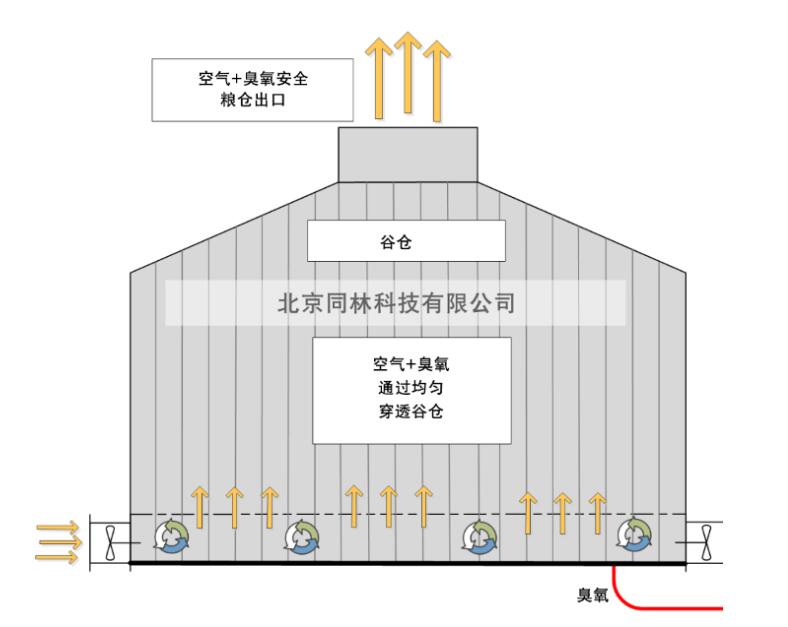粮食储存用臭氧熏蒸对昆虫和害虫有用吗
与贮存粮食损失或由于生命体、虫害、啮齿动物和真菌和昆虫的实际形状而不是生物,如温度或湿度,它通向全球损失超过80万公吨的粮食库存。大多数时候,磷化铝被用于熏蒸,尽管它可能是危险的。此外,昆虫和害虫已经对磷酸盐产生了耐药性。其他熏蒸剂,如羰基硫化物、甲酸乙酯、氰化氢、甲基碘和丙烯氧化物,与磷酸盐相比成本较高(Singh和Sharma, 2015年)。另一方面,几项研究表明,臭氧在处理谷物方面是有效的,其优点是,如果适当控制剂量和暴露时间,它不会影响谷物的质量。

臭氧作为储存产品中昆虫和害虫的替代熏蒸剂
臭氧已被成功地用作储存产品的很好熏蒸替代品。已经进行了几项关于使用臭氧作为商业熏蒸剂的更环保替代品的研究。
下表总结了臭氧熏蒸对选定谷物和昆虫的浓度和暴露时间的影响。
| Target | Concentration/exposure time | Significant results | Reference |
|---|---|---|---|
| Adults of Callosobruchus maculates and C. Chinensis L | 0.25, 0.5, 1.0, 1.5 and 2 g/m3; 1, 3, 5 and 7 days | C. maculates – 100% at 1.0, 1.5 and 2.0 g/m3 for 7 days & C. Chinensis – 100% at all concentration | (Gad et al.2021) |
| Adult, larva, pupa, and eggs of Callosobruchus maculatus | 500-1500 ppm; Adults – 120 to 270 minutes; Larvae – 540 to 1110 minutes; Pupae – 480 to 1230 minutes; Eggs – 660 and 1500 minutes | Adult – 100% at 150, 180, 240, and 270 minutes; Larvae – 100 % at 540, 660, 870, 1110 minutes; Pupae- 480, 570, 690, 990, 1230 minutes; Egg- 660 minutes | (Ravi Pandiselvam et al. 2019) |
| Tribolium castaneum, Oryzaephilus surinamensis Sitophilus zeamais Sitophilus oryzae | 200 ppm; 1, 2, 3, 5, 6, 8, 10, and 12 hour assessed for 5 days | 100% – Sitophilus spp, O. Surinamensis. 90% – T. castaneum | (Xinyi, Subramanyam, and Li 2017) |
| Rhyzopertha dominica adults | 40.42 and 0.84 g/m3; 0.42 g/m3 – 36 hours, 0.84 g/m3 – 30 hours for 5 days | 99% | (Subramanyam et al. 2017b) |
| Eupteryx Decemnotata | 120 and 595 ppm; 2 and 10 minutes | 120 ppm for 2 minutes- 33.88 to 71.90% 595 ppm for 10 minutes – 70.24 to 91.66% | (Kopacki et al. 2017) |
| Adult, larva, pupa, and eggs of Lasioderma serricorne (F) | 150, 250, 350, and 450 ppm; Larva- 609.37, 544.90, 496.64 and 187.20 minutes Pupae – 628.80, 581.64, 522.78, and 429.33 minutes Adult – 745.33, 610.18, 544.98, and 422.98 minutes | 99% | (Anandakumar, Shubhashini, et al. 2016) |
| Adult, larva, and pupa of Stegobium paniceum L. (Drugstore beetle) | 150, 250 and 350 ppm; Adult – 50.8, 24.08, and 18.46 hours Pupa – 10.95,7.93 and 6.42 hours Larva – 3.84, 12.08, 10.5, and 9.34 hours. | 100% – Adults and 99% – larva and pupa. | (Anandakumar, Singh, et al. 2016) |
| Ephestia castella– larva | 22 ppm; 24 hours | 100% | (Husain et al. 2015) |
| Adults of Oryzaephilus surinamensis L., larvae of Ephestia kuehniella Zeller | 2, 3 and 5 ppm; 15, 30, 45, 60, and 90 minutes | 100% at 5ppm for 90 minutes | (Sadeghi, Mirabi Moghaddam, and Taghizadeh 2017) |
Source (Boopathy et al. 2022)
臭氧作为真菌和真菌毒素的替代品
小麦可以用臭氧处理,以降低真菌和真菌毒素的水平。Guiseppe等人在2020年提交了一份表格,其中的研究表明,臭氧化是消除真菌毒素和为受污染的农产品解毒的有效方法。大约有400种真菌毒素,其中30种被认为对人类和动物有害。臭氧可以在许多食物/饲料和各种操作条件下降解很危险的真菌毒素。
| Target | Concentration/exposure time | Food/Matrix | Significant results | References |
|---|---|---|---|---|
| AFB1 | 20 and 40 g m−3 of gaseous O3 for 5, 10, 15, and 20 min | Wheat grains | Total reduction of AFB1 after 10, 15 and 20 min of exposure | Luo et al 2014 |
| AFB1 | 4 and 8 g m−3 of aqueous O3 for 2, 4, 6, 8, 10, and 12 h | Pistachio kernels | Reduction by 48, 13, 46, 44 and 44% after 2, 4, 6, 8, 10 and 12 h | Nooghi et al 2016 |
| AFB1, Aflatoxin B2 (AFB2), Aflatoxin G1 (AFG1) and Aflatoxin G2 (AFG2) | 15, 30, 45, and 75 g m−3 of gaseous O3 for 60 min | Corn flour | Reduction of AFB1, AFB2 and AFG1 by 79, 71 and 72% at 75 g m−3 | Wang et al 2016 |
| DON | 10 m g−3 of gaseous O3 for 30 s | Wheat | Reduction by 94% | Venter et al 2014 |
| AFB1, AFB2, AFG1 and AFG2 | 8.5, 13.5, 20, 25, and 40 g m−3 of gaseous O3 for 20 min | Aflatoxins dissolved in water | Rapid elimination of AFB1 and AFG1 | Proctor et al 2014 |
| DON | 100 g m−3 of gaseous O3 for 1 h at 20% moisture | Wheat flour | Reduction by 78% | Kouchesfahani et al 2015 |
| Aflatoxins and DON | 60 g m−3 of gaseous O3 for 300 min | Wheat grains | Reduction of aflatoxins and DON by 64 and 48%, respectively | EPA 2016 |
| DON, HT-2 toxin (HT-2), T-2 toxin (T-2) and zearalenone (ZEA) | 20 g m−3 of gaseous O3 for 40 and 130 min | Wheat grains | Reduction of HT-2, T-2 and ZEN by 65, 62, and 59% after 40 min. Reduction of DON by 25% after 130 min | Li et al 2019 |
| ZEA and OTA | 100 g m−3 of gaseous O3 for 180 min | Corn | Reduction of ZEA and OTA by 91 and 71%, respectively | Dodd et al 2013 |
| DON | 80 g m−3 of aqueous O3 for 10 min | Contaminated Wheat, corn and bran | Reduction by 75, 71, and 76% in contaminated wheat, corn, and bran, respectively | Kouchesfahani et al 2015 |
| DON | 65 g m−3 of aqueous O3 for 60, 120, and 180 min at 10 and 25% of moisture | Wheat flour | Reduction by 70, 70, and 78% in wheat flour after 60, 120 and 180 min of exposure at 25% of moisture | Li et al 2015 |
| DON and DON-3-Glc | 40 g m−3 of gaseous O3 for 6 h | Wheat grains, semolina and pasta | Reduction of DON and DON-3-Glc by 29 and 44% | Alexandre et al 2017 |
| ZEN | 50 g m−3 of aqueous O3 for 90 min | Corn flour | Reduction by 95% | Sun et al 2016 |
Source (Guiseppe et al. 2020)
臭氧已经为食品工业的主要问题带来了希望,如真菌毒素污染和农药残留物。O3的一个特别好处是它能够抑制真菌的生长、孢子和发芽,而不会失去营养或感官品质。必须确定食品和饲料的O3浓度、接触时间和其他处理条件,以确保加工的有效性和安全性。由于每一种O3应用都是独一无二的,上面显示的浓度和接触时间仅供参考。
标签:臭氧熏蒸 粮食储存